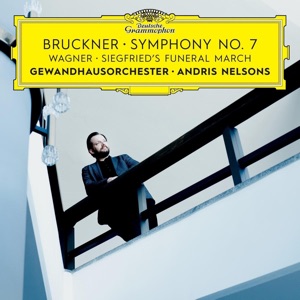Beautifully played, warmly recorded, this performance wallows in the kind of torpor you feel on a hot summer day: the more it tries to move, the heavier and duller it gets. With this third release in a Bruckner cycle that absolutely no one was looking forward to, it should be clear that Nelsons has little feeling for the music. His problem is easy to describe: he has an unfortunate habit of slowing down at points of transition that need to move forward (such as between the Adagio’s principal subjects), and he tries to score points in loud passages by dragging them out unnecessarily. Witness the theoretically humorous “dancing elephant” episodes in the symphony’s finale. Now, when you have a large orchestra with four Wagner tubas blasting away in unison, the last thing you need to do is slow down, but that’s just what Nelsons does, and the results are lethal.
The same bad habits are very much in evidence in the program’s opener, one of the most boring performances of Siegfried’s Funeral Music (here called a march, which it isn’t) yet committed to disc. Again, no complaints about the quality of the playing as such. All of the problems come straight from the guy on the podium. Why do he and so many conductors today do these things? It it just because they can? Is it that orchestras are so much better at what they do that they feel a desperate need to micromanage their way through a performance, just to prove that they have a purpose in being there? Do they think that random fiddling with spots that need no special attention makes them sound somehow profound, or full of musical “ideas?” Whatever the reason, Nelsons is no Bruckner conductor–or a Wagnerian for that matter. Spend your time and money elsewhere.
































